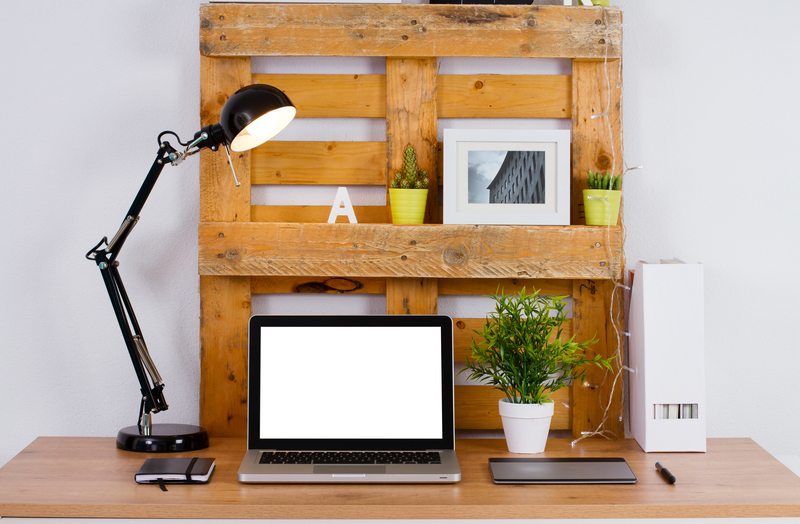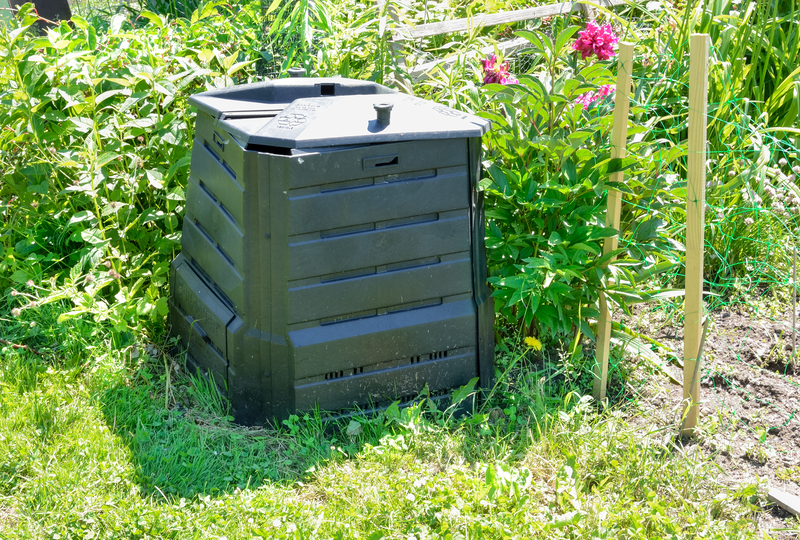Smart Ways to Dispose of Plant Pots
Plant lovers, gardeners, and homeowners alike are often left with a pile of empty plant pots after gardening season or repotting their favorite houseplants. Whether made from plastic, terracotta, or biodegradable materials, disposing plant pots can present a challenge. If you're wondering about the best ways to dispose of plant pots or how to recycle them responsibly, you've come to the right place. In this article, we'll explore various eco-friendly methods for plant pot disposal, along with some creative alternatives, ensuring you keep your gardening hobby as green as possible.

Why Proper Plant Pot Disposal Matters
Every year, millions of plant pots are discarded, and unfortunately, many end up in landfill where they take years or even centuries to break down. Plastic contamination is a significant environmental issue, while even clay or terracotta pots don't biodegrade efficiently in landfill conditions. By using smart plant pot disposal methods, we can reduce our environmental footprint, support circular economies, and maintain a cleaner planet.
- Plastic plant pots are most commonly used and hardest to dispose of.
- Terracotta and clay pots are reusable but break easily and may not always be accepted in recycling systems.
- Some pots are made from biodegradable materials offering more sustainable solutions.
Types of Plant Pots and Their Environmental Impact
1. Plastic Plant Pots
Plastic pots are lightweight, inexpensive, and durable, making them the go-to choice for many nurseries and gardeners. Unfortunately, not all plastics are recyclable, and black plastic pots can sometimes be missed by recycling centers due to color sorting issues. Inappropriate disposal overwhelms landfills and introduces microplastics to ecosystems.
2. Terracotta and Clay Plant Pots
Clay and terracotta plant pots are crafted from natural materials, but their production has a significant carbon footprint. While they don't leach harmful chemicals, broken pieces can take hundreds of years to erode in landfills. However, these can also be creatively reused in gardens.
3. Biodegradable and Compostable Pots
Made from materials like fiber, peat, paper, bamboo, or coir, these pots are designed to break down naturally over time, making eco-friendly plant pot disposal easier. Compostable pots can often be planted directly into garden beds and will integrate into the soil.
Top Smart Ways to Dispose of Plant Pots
1. Reuse and Repurpose Plant Pots
- Repot new plants: Keep plant pots for future planting projects or seedlings.
- Organize your garage: Use old pots to store small tools, nails, or bolts.
- DIY crafts: Paint and decorate pots as home decor, pencil holders, or storage bins.
- Garden art: Stack, combine, or paint pots for unique garden sculptures.
- Drip trays: Use broken pieces as drip trays or mulch in potted plants.
Reusing is the most sustainable method of dealing with unwanted pots, extending their life and reducing the need for single-use items.
2. Donate Plant Pots to Community Projects
If you have a surplus of plant pots in good condition, consider donating them to:
- Community gardens: Local gardens are often in need of supplies.
- Schools: Educational programs can use them for science experiments or classroom plantings.
- Charities and non-profits: Many organizations accept plant pots for horticultural projects.
- Garden centers and nurseries: Some businesses accept used pots for reuse or recycling.
Check with your local garden centers, as some offer incentive programs or discounts for returned pots.
3. Recycle Plant Pots Responsibly
While recycling plant pots seems straightforward, it's important to know the dos and don'ts.
- Clean the pots: Remove dirt, labels, and plant residue. Dirty pots may be rejected by recycling centers.
- Check recycling symbols: Look for recycling codes (usually on the bottom). Plastics #2 (HDPE) and #5 (PP) are most accepted.
- Contact local facilities: Not all curbside programs accept plant pots; check with your municipality for specific instructions.
- Participate in take-back programs: Many garden chain stores or nurseries offer pot recycling at designated drop-off points.
*Remember,* black plastic pots are not always accepted as they can be missed by common sorting technologies.
4. Compost or Plant Biodegradable Pots
If you're using biodegradable plant pots, the best practice is often to compost them or plant them directly with your seedlings. These pots typically break down within a single growing season, returning nutrients to the soil while eliminating waste.
- Remove plant labels, staples, and anything non-biodegradable before composting.
- For pots made from peat, fiber, or paper, tear them up to accelerate decomposition.
- Ensure your compost pile is properly maintained to foster breaking down.
Tip: Always check the packaging for composting guidelines, as some 'biodegradable' pots require industrial composting facilities.
5. Upcycle Broken Pots in Your Garden
Even cracked and chipped pots have potential. Here's how to upcycle broken plant pots:
- Drainage material: Place shards at the bottom of other pots to improve drainage.
- Mulch: Crush into small pieces and use as decorative mulch.
- Fairy gardens: Build whimsical miniature gardens inside large broken pots.
- Garden edging: Line garden beds or paths with large pot pieces for rustic charm.
By upcycling, you give new life to old materials and add unique character to your landscape.
6. Return to Retailers or Manufacturers
Increasingly, retailers and manufacturers are recognizing their role in responsible plant pot disposal. Many have introduced:
- Take-back schemes: Drop off your used pots at participating stores.
- Pot exchange programs: Exchange old pots for discounts on new plants.
- Recycling partnerships: Retailers team up with recycling companies to process returned pots.
Contact your local garden center or major chains to see if such programs are available in your area.
7. Avoid Purchasing Non-Recyclable Pots
The smartest way to dispose of plant pots is to avoid non-recyclable ones in the first place. When shopping for new pots:
- Choose recycled materials: Look for pots made from post-consumer recycled plastic.
- Select compostable options: Opt for pots certified for home or industrial composting.
- Buy terracotta or ceramic: These last longer and are easier to reuse or upcycle.
- Support local artisans: Handmade, high-quality pots may outlast mass-produced versions.
Common Mistakes in Plant Pot Disposal (and How to Avoid Them)
Even with the best intentions, many well-meaning gardeners make mistakes that undermine eco-friendly efforts. Here's a quick guide to avoid common pitfalls:
- Throwing plastic pots in general recycling without cleaning: Soil and plant residue can contaminate recycling loads.
- Tossing all plant pots in curbside bins: Not all plastics are accepted--check first!
- Sending biodegradable pots to landfill: Most will not compost properly without the right conditions.
- Breaking terracotta pots into fine pieces and scattering them: Some glazes may contain harmful chemicals; use unglazed only for mulch or garden beds.
FAQs: Sustainable Plant Pot Disposal
Can plastic plant pots go in the recycling bin?
Not always. Check for the recycling symbol and contact your local recycling center. Plastics #2 and #5 are usually accepted; black pots are generally not.
What is the best way to get rid of broken terracotta pots?
Repurpose them in your garden for drainage, as mulch, or for art projects. If you must dispose, check if your local landfill accepts inert materials separately.
Are biodegradable pots safe for compost?
Generally, yes. Always verify that your pot is certified compostable and avoid anything with synthetic lining or glue.
Where can I donate used plant pots?
Try local garden centers, schools, non-profits, or community gardens. Many welcome donations, especially during planting season.

Summary: Making Plant Pot Disposal Simple and Sustainable
In conclusion, finding smarter ways to dispose of plant pots isn't just about clearing out your shed--it's about making small choices that have a big impact on the environment. From reusing, donating, recycling, upcycling, to switching to sustainable pots, there are plenty of green solutions at hand.
- Reuse or donate whenever possible
- Recycle according to local guidelines
- Compost biodegradable options
- Upcycle broken pots into garden features
- Choose sustainable pots for future purchases
Remember, every pot saved from landfill is a step towards a greener home and planet. Make it your mission to adopt smart plant pot disposal practices and encourage others in your gardening community to join you!
Further Reading and Resources
- RHS Guide to Plastic Pot Recycling
- Garden Organic UK - Resources on Sustainable Gardening
- Recycle Now: Plant Pot Recycling
- EPA: Recycling and Waste Management
By staying informed and proactive, you can turn what was once waste into worthwhile resources - happy gardening!